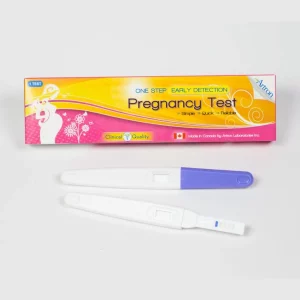Did you get sick with COVID-19 and not entirely heal within a couple of weeks? You may be a long hauler. So, what are COVID-19 long haulers?
Coronavirus affects some people much like a common cold or flu, with symptoms lasting up to several days. While others suffer from long COVID and experience more severe symptoms for many months. The U.S. National Institutes of Health coined the term “Post-acute sequelae of SARS-CoV-2” for these long-term sufferers, though many prefer “long haulers.”
As the virus continues unfolding, more questions arise surrounding this phenomenon that we must figure out as we go. This article provides an overview of what is known about COVID-19 long haulers based on the most up-to-date research findings. Continue reading to learn about the common symptoms, why they happen, how long they last, treatment options, and preventative measures.
Who are COVID-19 long-haulers?
COVID-19 long-haulers encompass a diverse group of individuals who continue to experience a range of persistent symptoms following their initial infection with the coronavirus. These individuals, often referred to as COVID-19 long-haulers, endure various physical and mental health challenges that significantly impact their daily lives.
One prominent aspect of the long-hauler experience is the prevalence of post-traumatic stress disorder (PTSD) symptoms. Long-haulers may develop PTSD as a result of the distressing nature of their illness, including the initial infection, prolonged hospitalization, or the uncertainty surrounding their recovery. The psychological impact of COVID-19 on long-haulers cannot be overlooked, as it plays a crucial role in their overall well-being.
Apart from mental health concerns, COVID-19 long-haulers commonly face persistent physical symptoms. These symptoms may include chronic fatigue syndrome, neurological manifestations, and difficulty breathing, among others. Chronic fatigue syndrome can lead to persistent exhaustion, muscle weakness, and impaired cognitive function, further hindering the long-haulers’ quality of life.
Furthermore, neurological symptoms are often reported by COVID-19 long-haulers, including brain fog, memory problems, and difficulty concentrating. These symptoms can greatly affect their cognitive abilities and hinder their ability to perform daily tasks efficiently.
The experience of COVID-19 long-haulers is characterized by the persistence of symptoms beyond the acute phase of the illness. These individuals may continue to grapple with a complex combination of physical and mental health challenges, requiring comprehensive medical care and support. By recognizing and understanding the unique needs of COVID-19 long-haulers, healthcare providers can work towards developing effective management strategies to improve their overall well-being and facilitate their path to recovery.
What Are Some of the Potential Long-Term Effects of COVID-19?
COVID-19 symptoms vary from person to person, including long haulers. The disease can affect many different parts of the body, causing unusual side effects that alter your daily life.
Some of the most common long-term effects and symptoms that you may experience after COVID-19 include:
- Lung problems: Severe COVID-19 cases can cause permanent damage and scarring to your lungs. Less extreme cases may lead to long-term shortness of breath, making it hard to exercise.
- Heart complications: Coronavirus often causes minor amounts of heart inflammation that can lead to fast breathing and heart racing. 60% of people experience some form of heart inflammation, even after recovering.
- Damage to the kidneys: Researchers found that COVID-19 can affect different organs, like your kidneys. Kidney damage can lead to the need for dialysis.
- Unusual senses: Many people complain of a loss of taste, smell, or phantom senses when they come down with the virus. Long haulers may experience these unusual senses for many months.
- Brain haziness: Common complaints amongst long haulers are headaches, dizziness, chronic fatigue, and overall brain fog. Researchers do not yet know why this occurs.
- Blood circulation and nervous system damage: COVID-19 survivors are more susceptible to getting Postural Orthostatic Tachycardia Syndrome (POTS), which causes insomnia and all of the brain haze symptoms we mentioned above.
- Diabetes: Some of the most severe COVID-19 sufferers develop Type 2 Diabetes, though medical centers do not yet know the relationship between these conditions.
- Psychological trauma: Many people who experience extreme symptoms, loss of work, hospitalizations, and loss of loved ones also suffer depression, anxiety, and Post-Traumatic Stress Disorder (PTSD) from their agony.
Why Won’t These Symptoms Go Away for Some People?
You may be wondering why all of these symptoms persist for some people but not all. Virus researchers want to know the same thing. So far, scientists understand that COVID-19 strikes many different parts of the body, including muscles, organs, and the nervous system.
This blanket attack leads to many symptoms in patients with severe, mild, and minor cases. People who barely felt sick may have even worse long-term effects than those hospitalized with a nearly fatal case. Everybody seems to recover differently, though researchers do not yet know why.
Do People With Pre-Existing Conditions Experience More Long-Term Symptoms?
Most long-haulers have pre-existing conditions that make them high-risk patients, though many healthy adults and children still experience these effects.
Can I Prevent Long-Term Symptoms?
You cannot prevent becoming a long hauler since we do not know the actual cause yet. Your best prevention method will be to avoid getting sick in the first place. If you get the virus, be sure to rest your body adequately so it has time to heal by avoiding any extraneous activities for 14 days, even if you feel up to it.
How Long Do Long Haulers Stay Sick After Testing Negative for COVID-19?
Since the COVID-19 pandemic began only a couple of years ago, we do not yet know how long it will take for long haulers to recover. Many patients can fully recover within a few months, while some still experience symptoms today. Even those who recover may have long-term damage that will affect them for the rest of their lives.
The severity of your symptom may determine how long it lasts. The confusion of senses typically does not cause harm to your body, so many people who experience that symptom can get back to normal in a few months. Something more severe, like POTS, can require many years of recovery.
Are There Any Treatments for Long-Term Symptoms? What Are COVID-19 Long Haulers’ Treatment Options?
At the moment, no cures exist for long haulers. Instead, doctors can treat your symptoms with medications and physical therapy to help ease your road to recovery.
Should I Still Get Vaccinated?
The CDC recommends that you be symptom-free and test negative for a COVID-19 test before receiving the vaccine. However, the severity of post-COVID conditions varies greatly, so depending on your scenario, you may still need the vaccine. You should discuss it with your doctor to decide the best route for you.
Am I Still Contagious?
In most scenarios, you will no longer be contagious after a week or two of contracting the virus and then testing negative. You may experience long-term symptoms, but you will not spread them.
However, if your fever persists, then you are still contagious.
Can COVID-19 Damage Organs?
COVID-19 can cause organ damage, particularly to the lungs and kidneys. Depending on your symptoms, you may or may not experience long-term organ damage that can put you at high risk for many other health complications.
When Should I Visit a Doctor About My Symptoms?
You should visit a doctor if more than two weeks go by and you’re still experiencing any of these symptoms:
- Fever
- Shortness of breath
- Heart racing or chest pain
- Fatigue
- Headache
- Dizziness
- Loss of taste or smell
- Phantom taste or smell
Even if your symptom does not feel too severe, you may have underlying damage that requires treatment. Healing your injuries can help you prevent long-term complications.
You should immediately go to the emergency room or call 911 if you have:
- Trouble breathing
- Severe chest pain
- Loss of consciousness
- Confusion
- Purple lips and fingers
- Suicidal thoughts
Are You Experiencing COVID-19 Symptoms?
If you are experiencing COVID-19 symptoms and feel concerned that they may lead to long-term effects, you should immediately take a rapid test to determine whether or not you have the virus.
At Rapid Test & Trace Canada, we offer convenient online orders to receive your rapid test in the mail without leaving home and spreading the illness.
Order a rapid test online today, or contact us by clicking on our chat bubble for more information!
Buy Rapid COVID Tests in Canada
While scientists are still studying the phenomenon of long COVID, our team at Rapid Test & Trace pledges to help stop the spread of COVID-19.
At Rapid Test & Trace, we are Canada’s most-trusted source of quick and affordable rapid COVID tests, partnering with hundreds of organizations across the country. Navigating the process of getting tested for COVID can be confusing and stressful, especially if you need quick results for work. We make it easy, delivering rapid tests that Health Canada authorizes within two business days of purchase.
-
Sale!
 🍁 PRODUCT OF CANADA 🍁
🍁 PRODUCT OF CANADA 🍁Artron One-Step Early Detection hCG Pregnancy Test
At-home Fertility Testing Kits$7.99Original price was: $7.99.$6.45Current price is: $6.45./testAt-home Fertility Testing KitsArtron One-Step Early Detection hCG Pregnancy Test
Rated 4.00 out of 5$7.99Original price was: $7.99.$6.45Current price is: $6.45./testYou save $1.54 (19% Off) Buy Now(5 Reviews)Rated 4.00 out of 5$6.45Rapid Flu & Strep Test KitsCiTEST Strep A Rapid Test (20 pack)
$34.90/box Buy NowRated 4.80 out of 5(5 Reviews)Rated 4.80 out of 5$34.90
Our goal at Rapid Test & Trace is to provide Canadians with tools to protect themselves and others. Order rapid tests through our online store or contact us for a quote.
Travelling Soon? Book Your Observed Test Today
It’s a fast and easy way to get your COVID test results certificate for travel. Just schedule a time with one of our friendly nurses, perform a supervised rapid antigen test and get your results document via email.





















































